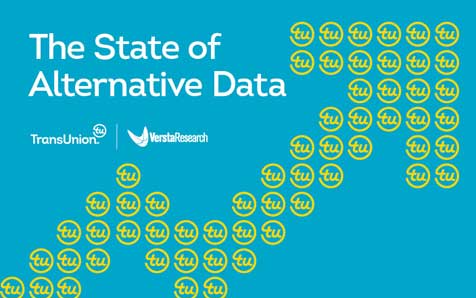
January 2016
Dear Reader,
It was a small revelation to learn that corporate researchers want to feel smart at the end of a project, just like we do. They want to learn new things (just like we do), grow in their own expertise (just like we do), and present new ideas to their business partners with confidence (just like we do).
That revelation came from the findings of a super interesting study presented a few months ago at an MRA conference in St. Louis. It inspired our main article, The Hidden Secrets of What Researchers Really Want. No matter which side of a research team you are on, we think you will find the insights from this study as provocative as we did.
Other items of interest in this newsletter include:
- Research Reveals When Videos Work
- Consumers Who Help Predict Failure
- Be It Resolved: Revise Your Business Prose!
- Hot Topics in 2015: NPS, Infographics, and More
- Better Cell Phone Sampling
- Does This Phone Survey Flatter Me?
- Design Thinking Invades Market Research
- Survey Scales Go from Bad to Good
- Research Tip: Write Dream Headlines
- Avoid This Mistake of Bad Marketing Science
- P-Hacking and Other Bad Research Practices
- Video Content Skews Survey Results
- A Tale of Data That Got Too Big
We are also delighted to share with you:This section highlights a recent study we conducted among consumer lending institutions (banks, credit unions, mortgage providers, and so on) commissioned by TransUnion, one of the big-three credit reporting bureaus . It also debuts our new video introduction to Versta Research, which, if you have not met us yet, puts a face to the voice of Versta Research.
As always, feel free to reach out with an inquiry or with questions you may have. We would be pleased to consult with you on your next research effort.
Happy New Year!
The Versta Team
The Hidden Secrets of What Researchers Really Want
Twice in my career I had a research project go bad. Each was a pivotal moment in realizing that skilled leadership brings together (or fails to bring together) the players who make or break the success of a research project.
If corporate-side research managers are not happy, they wear down the team with unending rounds of questions and requests, searching in vain for elusive insights they promised their business units. If vendors are not happy, they stonewall progress by sticking to protocols that protect their interests instead of solving problems. And if research participants are not happy, they disengage from the effort, providing data that is meaningless or dangerously off mark.
Brilliant research depends on enthusiastic effort from all three groups: client-side managers, vendors, and respondents. So how does an effective research leader make that happen, balancing the skills, needs, and aspirations of each?
What does a corporate research manager really want from the effort? How about a research vendor? And how about a research respondent?
I found answers at this year’s Corporate Researchers Conference in a fascinating session on the intrinsic motivations that drive each group of players on a research team. Sandra Bauman and Mary Aviles—both on the vendor side—conducted focus groups and in-depth interviews with all three groups. Beyond just wanting a project to succeed, they asked, what does a corporate research manager really want from the effort? How about a research vendor? And how about a research respondent?
Here is a synthesis of findings and insights from that presentation, liberally shaped by my own observations of why some research projects are spectacularly gratifying and successful, and why sometimes they go bad.
Corporate Researchers want…
… results that get attention…
Research is always a tool for something else—a means to an end—and for most researchers that “something else” has to matter. Corporate researchers want to see internal and external users citing their research findings, especially when it charts new or unexpected territory. This helps them build inroads to other groups and business clients, which builds demand for new projects, enhances their value, and opens up new opportunities.
… to feel smarter at the end…
What’s the real value that research professionals bring to their work? Intellectual capital. Curiosity. Talent and training that not many others have. So while corporate researchers “long to see evidence that the findings were acted upon,” they also want to know that their input and expertise made it happen. With each project they invest time and effort guided by their clients’ questions. Now they want to feel smart and confident that they know the answers.
… from suppliers who help them grow.
While corporate-side researchers bring deep knowledge about business, research suppliers bring broad experience and methods to bear. As such, corporate researchers want “research partners who collaborate thoughtfully, who encourage new thinking.” They are looking for new ideas and healthy discussions that bring multiple perspectives. They want to improve the project, and they also want to enhance their professional expertise. On the flip side, they want vendors to realize how much they are putting at risk every time they sign on a supplier.
Researcher Vendors want…
… to make clients look good …
Nothing makes me happier than a client who wins immediate praise and attention from the work we did for them. Even if the practical impact of the findings are invisible to me (which is often the case for vendors) what feeds my drive more deeply is the personal impact the work will have (and, yes, the repeat business and word-of-mouth referrals it brings). I really want to help my clients do brilliant work that will earn them sincere praise from their colleagues.
… by offering deep expertise …
Research vendors offer broad experience and deep expertise in methods—a unique repository of intellectual capital from which corporate researchers can truly benefit. Vendors deeply want that expertise to be valued, trusted, and relied upon. “Please, let us bring new directions and smart thinking (not order-taking) to the research,” research vendors say. “Use that intellectual capital you are paying for. It’s why we are here.”
… that grows their own knowledge.
And because research vendors are selling expertise, they grow their value by learning. They seek deeper knowledge about their clients’ businesses and about the topics they’ve been hired to study. Research vendors live to see one phase of research “move seamlessly” into the next. Just as good vendors read journals and attend conferences not to sell, but to learn, they likewise value client meetings not for face time, but for the opportunity to listen and learn.
Respondents want…
… to feel listened to and valued …
It always surprises me how many people give freely of their time to take surveys, until I remind myself: People have opinions, and they want them known. Research studies delight respondents when they can share their opinions freely, and when the research team communicates trust, value, respect, and appreciation for those opinions. In short, participants want to feel special for having a unique perspective that others want to hear.
… with input that makes a difference …
With surveys, especially, there is often a nagging feeling that the opinions expressed will not really matter. Are my complaints and suggestions heard? Can I really help pick the best idea or the best ad for a new product? Research respondents want to know that their time has not been wasted. They are excited when they learn that real people review and assess their input and that their perspectives are shared with decision makers.
… giving them a preview of new ideas.
The best consumers for testing new products have a unique profile of openness, reflectiveness, creativity, and optimism (you can read about that here). So it’s not surprising that study participants say they feel delighted when they become privy to new, inside information about the next generation of products or services. Just like research professionals who are managing a project, research respondents want to be part of a collaborative process that helps them learn.
Making a Difference
There are common threads to what each group wants, and not surprisingly the aspirations of each speak to the fundamentals of research itself:
Research is about learning, and all three groups want to grow their knowledge and be smarter at the end.
Research is about applying expertise, and all three groups have contributions to make and want their expertise valued.
Research is about making a difference, and all three groups want proof that their efforts have an impact in various ways.
Effective leaders harness the enthusiastic efforts and talents of everyone involved by speaking to the deepest motivations of each. The secret (and, ultimately, the simplicity) of leading a great research project is to realize that, fundamentally, everyone involved wants the same thing. We are all motivated, each from our special standpoint, by wanting to learn, add value, and make a difference.
Stories from the Versta Blog
Here are several recent posts from the Versta Research Blog. Click on any headline to read more.
Research Reveals When Videos Work
Videos outperform static images on retail websites, making customers more likely to buy and less price sensitive, but only for premium products, not utilitarian ones.
Consumers Who Help Predict Failure
New research identifies a segment of consumers who consistently buy products that fail. Tracking their behavior can help you predict which products are doomed.
Be It Resolved: Revise Your Business Prose!
You can’t turn data into stories until you know how to write with power and clarity. Here is an excellent resource that will help you transform your writing.
Hot Topics in 2015: NPS, Infographics, and More
With over 19,900 visits to our website in 2015, here are the top posts that our marketing, PR, and research colleagues were reading on VerstaResearch.com.
Better Cell Phone Sampling
If you have to do a phone survey, be sure to include cell phones in your sampling frame. Here are 3 recent improvements to cell phone sample that will help.
Does This Phone Survey Flatter Me?
Research shows that people answer questions on telephone surveys less candidly than if those questions are asked online. Why? Because they want to look good.
Design Thinking Invades Market Research
“Design” professionals play an increasingly important role in market research and innovation because they bring perspectives focused on deep user experience.
Survey Scales Go from Bad to Good
Laying out response scales with negative options first improves data quality because it counteracts one type of survey bias by bringing into play another type.
Research Tip: Write Dream Headlines
Writing “dream headlines” for your market research project encourages a laser-like focus on outcomes that will matter, ensuring your research findings get used.
Avoid This Mistake of Bad Marketing Science
Confirmation bias is a critical threat to robust findings in marketing research and other social sciences. Here’s how it happens and how you can avoid it.
P-Hacking and Other Bad Research Practices
P-hacking is when researchers subtly manipulate data to find statistical significance. A new report from the National Science Foundation describes the problem.
Video Content Skews Survey Results
A recent study reveals important biases that can affect surveys that use video or other advanced technologies, because some people can’t or won’t use them.
A Tale of Data That Got Too Big
Here is a brilliant thought experiment about big data, published as a one-paragraph short story in 1946 by the Argentinian writer Jorge Luis Borges.
Versta Research in the News
TransUnion Taps Versta Research for Industry Benchmark Survey
Versta Research conducted an industry study about the use of alternative data among lenders who rely on consumer credit data. A summary of findings, an infographic, and a full report are available from TransUnion.

Video Introduction to Versta Research: Making Research Matter
If you have not yet met us in person (or even if you have) here is a video introduction to who we are and how we work. Share it with your colleagues!
MORE VERSTA NEWSLETTERS

